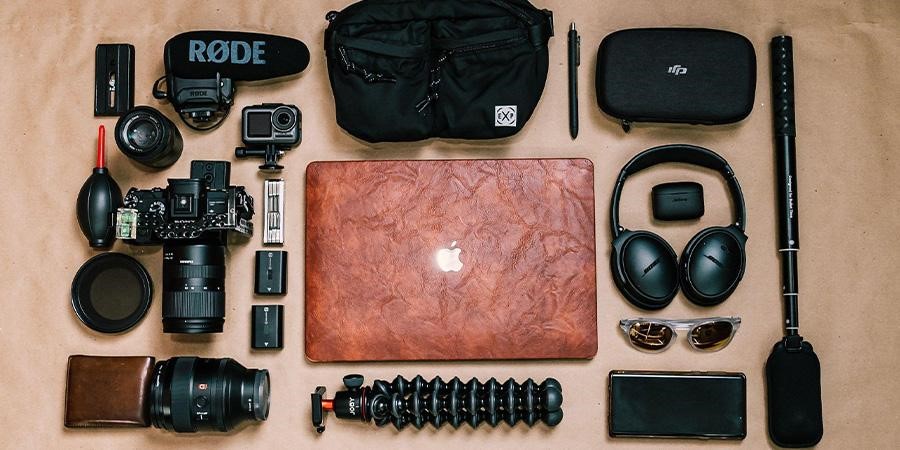Are you constantly finding and having to deal with rodents, bugs, and other pests in your home? Rather than waiting to react to pests, now is the time to go on the offense.
Preventing pest problems is the best way to keep your home pest-free.
Unfortunately, even the best efforts may not always be effective. Because of this, it’s also necessary to know how to get rid of pests when they infiltrate your home.
Keep reading for some tips to ensure your home remains pest-free.
Reduce Mulch and Plants
Start outside the home when trying to reduce pests. This is a tip right out of the best exterminator guide out there.
Take time to trim back any shrubbery and tree branches that are touching your home. This helps eliminate the “bridges” that the pests are likely using to make their way to and into your home.
Also, if you have mulch in your garden beds, it provides a shelter for pests. Choose a less accommodating ground cover, like rocks, rather than using mulch next to your home’s foundation.
Make Your House Unwelcoming
Small gaps around your doors and tears in window screens are essentially “welcome” signs to bugs. While it may seem impossible to keep all bugs out, you can eliminate these openings all the time.
Take time to replace damaged screens and seal up any gaps that are present. This is an effective way to minimize the bugs and pests making their way into your home.
Use Peppermint Oil
Along with making your house smell nice, peppermint oil and mint plants help to repel mice, mosquitoes, spiders, and ants naturally.
You can mix 10 to 15 drops of peppermint essential oil with eight ounces of water to create a spray you can use around windows, vents, and doorways.
Dispose of Litter and Trash Properly
You probably know that your household garbage can attract all types of pests, including rodents, roaches, and ants. However, what you may not realize is the yard waste may also attract pests.
This type of waste offers pests a source of food and a nesting location.
Be sure all trash cans have lids that fit well and clean the cans and where they are kept, ensuring no “goodies” left behind that would attract pests.
Be sure to keep your garage, deck, patio, and yard free from plant clippings, standing water, and leaf litter because all of these create the perfect home for pests.
Clean Up Your Kitchen
You rely on your kitchen for preparing, cooking, and eating meals. However, it’s not just you that may find this room appealing for a snack in the house.
Bugs look for various foods that may be left open and accessible. For example, ants will go after anything sweet, while Indian meal moths will infiltrate nuts, cereal, flour, and rice.
Make sure your food is properly stored in containers that seal well. Also, keep your counters and floors clear from any crumbs that may attract bugs to this room.
Don’t forget to seal up pet food, too. Most bugs aren’t too picky about the type of food they go after.
Use Diatomaceous Earth (DE)
Diatomaceous earth is made from crushed, single-cell, fossilized algae. While it isn’t dangerous to humans, it is deadly to any insects with an exoskeleton, including earwigs, beetles, spiders, stink bugs, flies, and bed bugs.
When bugs come in contact with DE, they will die within 48 hours due to dehydration.
Rinse Recyclable Items
Like your trash, it is a good idea to keep your recyclable items in a container with a lid that fits tightly. While this is ideal, some areas provide open bins to customers for recycling.
If this is what you have, be sure to rinse your recyclable items before adding them to the bin. Taking time to do this will help to keep pests away.
Also, if you can, keep your bin outside instead of in your home or garage.
Dry Up Damp Locations
Bugs are not just looking for food. They are also searching for water.
Some pests that invade your home, such as centipedes, springtails, and silverfish, prefer to stay in damp locations. Because of this, you need to make sure you fix any pipes, drains, and faucets.
Be sure your washing machine, dryer, and air conditioning unit are all working properly. Consider using a dehumidifier if there are areas in and around your home that always seem to be damp, such as the basement.
Also, make sure to inspect the attic to ensure it is dry.
Use Neem Oil
Neem oil comes from the Neem tree. It will kill over 200 different species of insects but doesn’t harm people or wildlife.
You can spray neem oil on your indoor plants, which will help control whiteflies, thrips, and aphids.
Now You Know How to Get Rid of Pests
Are you trying to figure out how to get rid of pests? If so, the tips and information here should help with that.
Be sure to try the tips here and if they aren’t effective, call a pest control professional for additional assistance. These individuals can ensure the right steps are taken to keep your home pest-free.
Are you interested in learning more and finding more helpful resources? If so, take some time to check out the other blogs on our site. Our team posts new information regularly to help ensure you remain informed.






More Stories
Deciphering Car Insurance in Malaysia
Vlogging Equipment: What You Need to Get Started
How To Find The Best Plumbing Business To Fix Your Leaking Tap